Categorization skills Numbers Worksheets for Ages 3-7
5 filtered results
-
From - To
Discover our engaging Categorization Skills Numbers Worksheets tailored for ages 3-7. These worksheets are designed to help young learners enhance their math skills through fun and interactive activities. By sorting and categorizing numbers, children will develop critical thinking and problem-solving abilities essential for their mathematical foundation. Our vibrant and easy-to-use worksheets provide opportunities for hands-on learning, making math enjoyable and effective. Perfect for parents and educators, these resources support early childhood education and align with developmental milestones. Explore our collection and empower your child to master categorization skills while building confidence in their understanding of numbers!
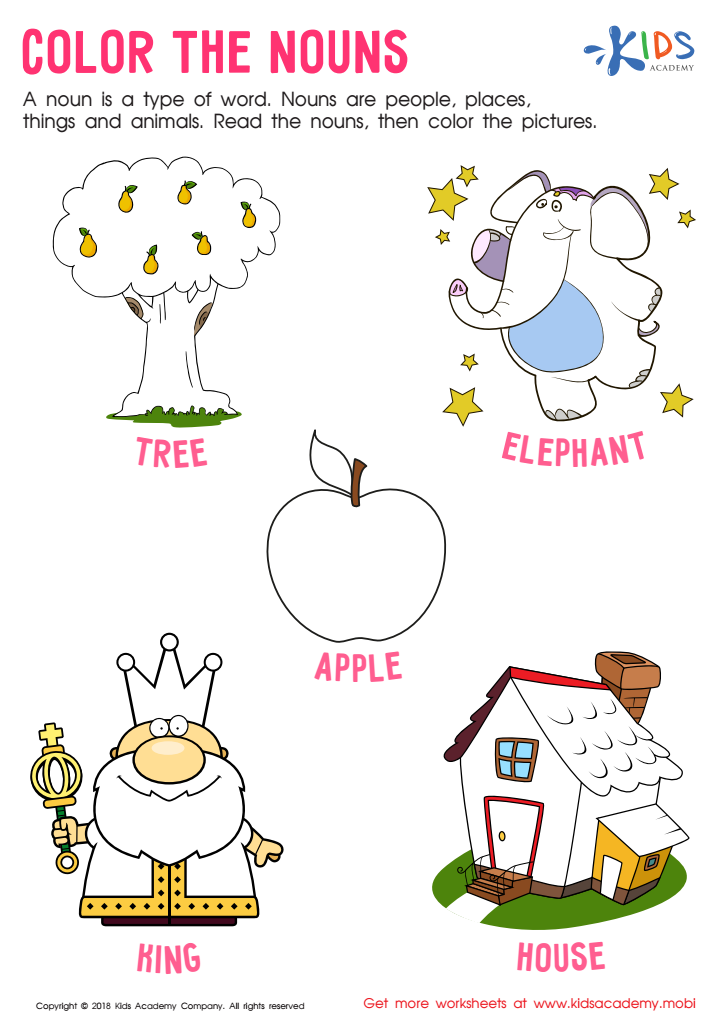

Color the Nouns Worksheet
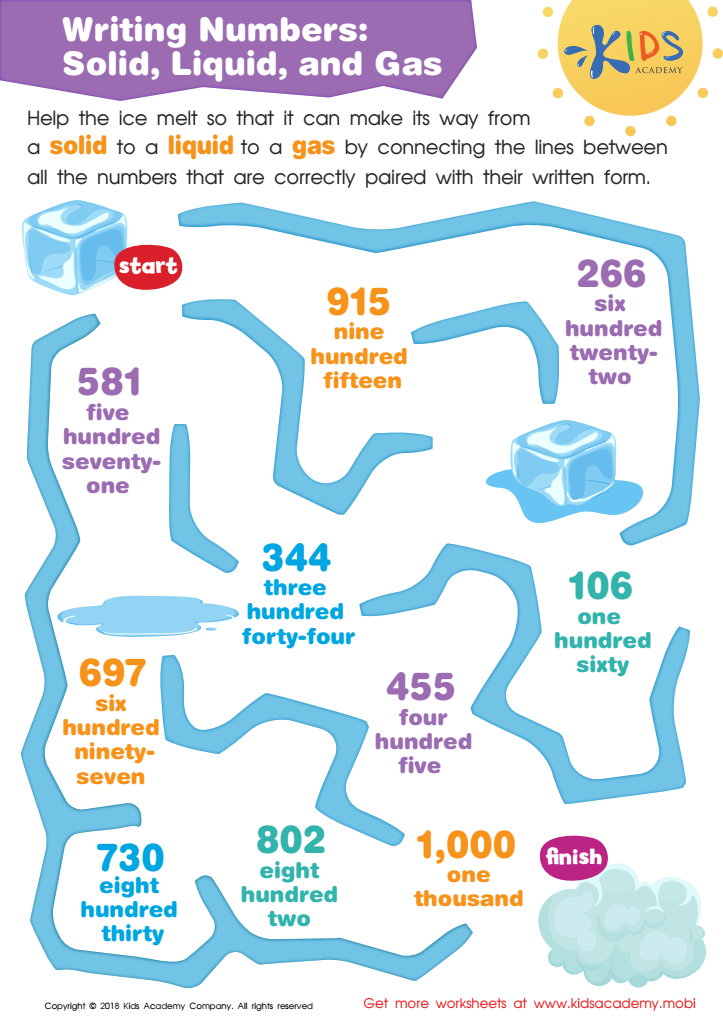

Solid, Liquid, and Gas Writing Numbers Worksheet
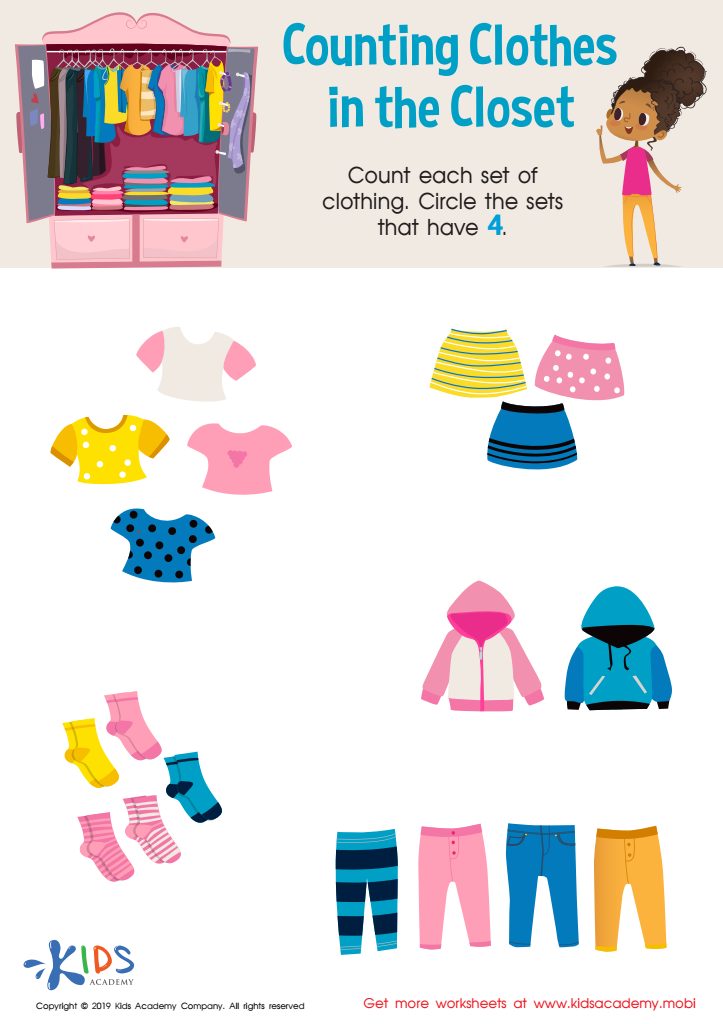

Counting Clothes Worksheet
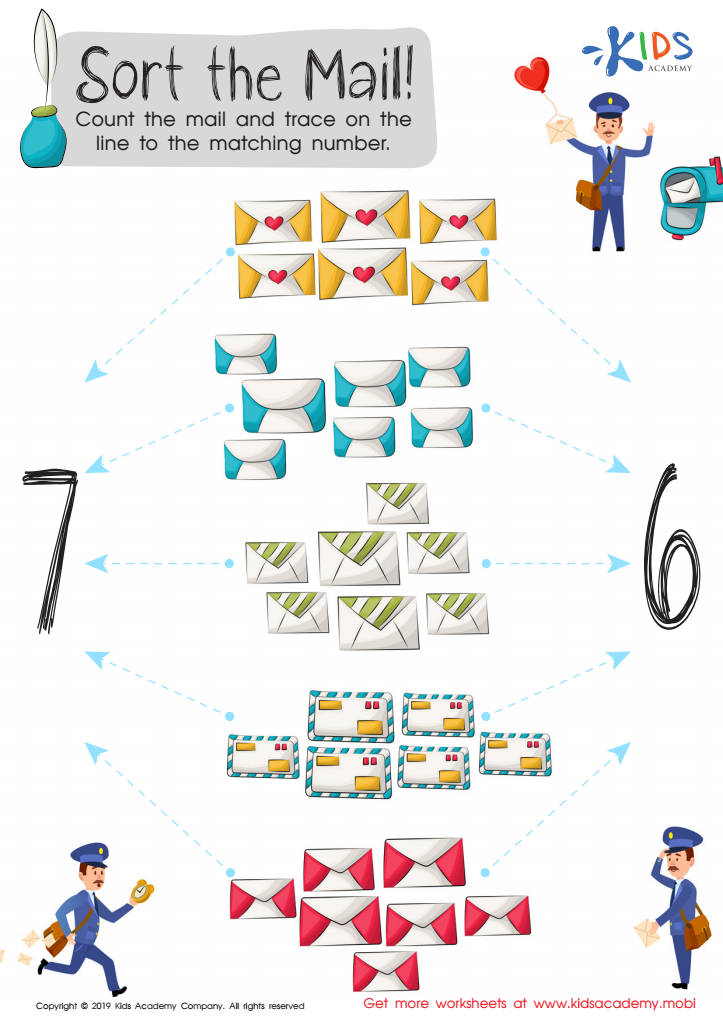

Sort the Mail Worksheet
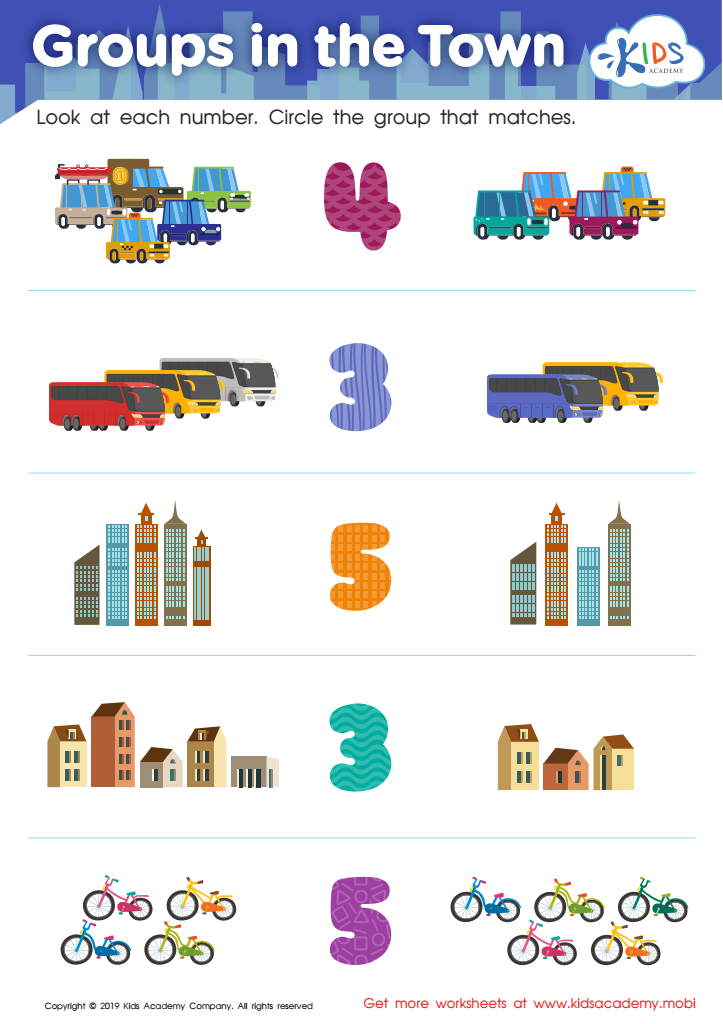

Groups in the Town Worksheet
Categorization skills are fundamental for young children aged 3-7 as they lay the groundwork for essential cognitive development and critical thinking. For parents and teachers, fostering these skills is crucial for several reasons. First, categorization helps children organize their experiences and make sense of the world around them. By grouping objects based on shared attributes like size, color, or function, children develop comparative thinking, which is vital for problem-solving.
Secondly, these skills enhance language development. As children describe categories, they learn new vocabulary and improve their communication abilities. This is essential for their academic success as well as their social interactions with peers. Thirdly, categorization forms the basis for mathematical understanding. Recognizing numbers, shapes, and patterns requires the ability to identify similarities and differences, reinforcing early numeracy skills.
Moreover, categorization is linked to emotional development. By categorizing emotions and experiences, children gain better self-awareness and empathy. Parents and teachers play a crucial role in guiding this skill development through interactive activities like sorting games, engaging in conversations about similarities and differences, and encouraging exploration. Ultimately, prioritizing categorization skills helps shape well-rounded, confident learners prepared for future challenges.
 Assign to My Students
Assign to My Students








.jpg)












